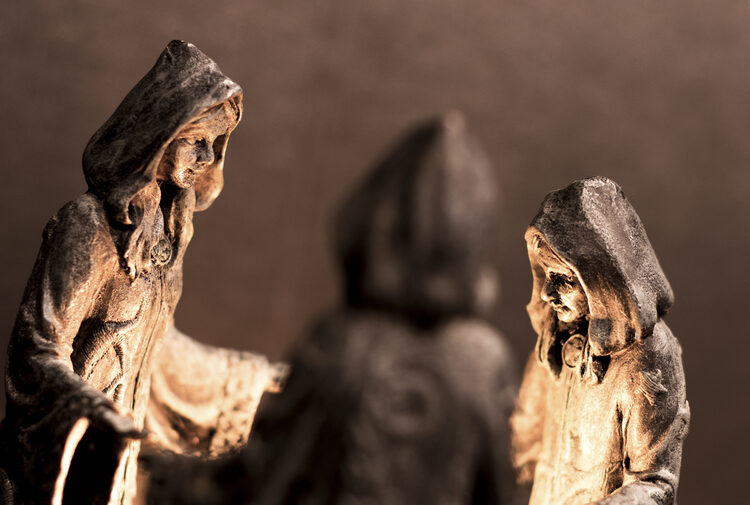 In follow-up to my post about narcissists called, The Problem with Being Swept off Your Feet” I want to distinguish the difference between a narcissist we can be in relationship with, and one we can’t, and what it really means to be in relationship.
In follow-up to my post about narcissists called, The Problem with Being Swept off Your Feet” I want to distinguish the difference between a narcissist we can be in relationship with, and one we can’t, and what it really means to be in relationship.
You see, we are all narcissists.
In fact, it is said in psychology that children raised by narcissistic parents will end up being narcissistic. It is also said that the Baby Boomer generation was the most narcissistic generation of them all, having to fend for themselves and pave the way, they had to indulge in their needs.
Therefore, all of us in my generation, we children of the Boomers, we are all narcissists.
So, given that, is there any difference in level or degree of narcissism? Yes.
Even though we can all have those tendencies, some of us are willing to remove our masks, see what we’re doing and be introspective. If we are willing to get help, sit in a counselors office, reflect and admit when we’re being a jerk and take responsibility, then we can show up and relate.
If we insist that we are fine, everyone else has a problem, or we blame others and are unwilling to participate in introspection, then we are not capable of meeting someone else in real relationship.
It takes two to tango. In all my relationships, I have played a part that co-created the dynamic, and I am no victim, nor is the other person.
If we are willing to feel our pain and the hurt we’ve caused and have empathy for another, then we can dance.
Someone who doesn’t feel their own depths and who can’t sit with their own fears and pain isn’t someone who can meet us in relationship when the going gets tough.
We have bodies and we are mammals and as such, we have feelings. Relationships bring up those feelings. In order to remain in relationship, we have to be willing to stay connected and show up for the other when feelings arise.
If something comes up for me and I am hurting, I can say, “Hey, you’re part of this, you triggered a part of it, and part of it has to do with my trigger from my childhood, but will you stay with me through this?”
Someone who cares about who you are and your history and your triggers and wants to be in real relationship with YOU will stay connected, stay with you, and see it through. (Someone who really can’t, or doesn’t care, is the type of narcissist you probably don’t want to choose for a partner, for they will not likely meet you where YOU MOST DESIRE TO BE MET!)
Someone who leaves and doesn’t make an effort to stay connected, or create resolution together with you, and accept responsibility for their part in it, is not someone available to relate with you.
Relating is painful.
We fear loss when we enter a new relationship. It is scary to attach. What we’re really fearing is the feelings we’ll have to feel if we go through loss.
Those feelings are deep grief, some of which originated with our families of origin and are old, deep wounds.
It’s scary, but relationships, when we care enough to stay connected and when we can be vulnerable enough to take off our masks and reach out to another, can be VERY healing.
We can help each other grow. We can see one another through our pain and our lost soul parts.
We can also trigger pain and then if we choose to not accept our role and if we don’t care to repair, then we are not actually in any sort of real relationship with any trust.
So, we can be with partners who are narcissistic, for we all are, but we must choose wisely and notice when someone is really interested in who we are and when they really stay with us through the scary parts, or, do they run, blame, and take off? Those people are not willing to do the work to meet in partnership and are the ones we want to walk away from.
This isn’t about pointing our finger and laying blame, either, but in a world like ours is today, with many people without fathers and with many families that are dysfunctional, we need help in seeing what’s a real relationship, what’s healthy, and when are we better off walking away?
With so many nurturing women too, we coddle our men, we direct more than we should, take charge, tell them what we need them to do, instead of sitting back and seeing if they can meet us.
We must look closely at the reactions of our partners when we put our needs on the line, or when trust has been broken. We can’t take over and play puppeteer and make them make us feel better.
Change only happens when we are uncomfortable, or we truly go deep and feel our aches and pains and we make a big change because it’s too painful to stay where we are.
If we make it easy for men and coddle and console and tell them what to do and always lead, then we are not in real relationships and we may not be met with real partners ready to truly relate, instead we are just enabling. (And our partners really won’t change and we’ll stay way too long.)
Some people say relationships are 80/80 or 100/100.
I prefer to keep it simple and I think of the good ‘ole 50/50 model.
Whichever way you slice it, relationships are give and take. That’s it. Period.
You are either willing to get over there in that other person’s world and get to know them and be connected and find out what it takes to relate with them, or you’re not.
If you’re not willing to show up and give your share and meet someone in the middle, well, you’ve got NOT a relationship.
To your relationship health,
xo
Rachel Claire
P.S. Like this content? Sign up for free updates.





 Clairvoyant Healer
Clairvoyant Healer Spirit Biz Coach
Spirit Biz Coach Read 100s of women around the
Read 100s of women around the 
 Get our Freebies
Get our Freebies I took a hiatus from posting on here regularly
I took a hiatus from posting on here regularly

 Join my Free Resource Library and get instant
Join my Free Resource Library and get instant 


[…] What Makes a Relationship a Relationship? (theboulderpsychic.com) […]